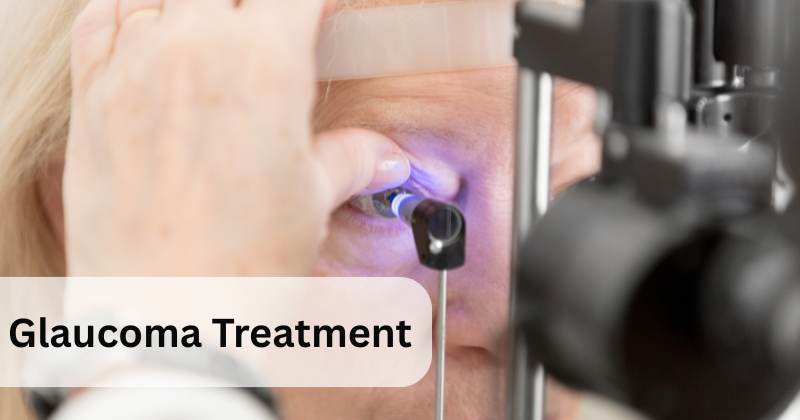Glaucoma Treatment in Delhi: Early Diagnosis, Laser Care & Painless Surgery
Glaucoma is a severe and vision-threatening disorder commonly referred to as the silent thief of sight. Due to the fact that it advances without pain or any apparent symptoms in the beginning, getting optimal glaucoma care is paramount to the health of the eyes in the future. Luckily, the treatment of glaucoma in Delhi is now very accessible on a global level. Patients are able to obtain the latest diagnostics and high-quality interventions by visiting an expert in glaucoma work rated highest in Delhi. Ranging between the non-invasive glaucoma laser treatment in Delhi to the modern glaucoma surgery that has been made painless, the objective is only to detect the eye and save the sight.
What is Glaucoma? Understanding the “Silent Thief”
Glaucoma is a set of eye disorders that cause damage to the optic nerve which is the first connection point of your eye and brain. The damage is normally caused by high intraocular pressure (IOP). This pressure may eventually render them permanently blind should it not be treated by a qualified glaucoma surgeon in Delhi. Since the vision loss is progressive and begins at the periphery, most people do not even realize it at an early age when it is already in its advanced stages. That is why timely treatment of the eye of glaucoma in Delhi is not an option but a must.
Common Types of Glaucoma
The treatment will be determined by the particular type of glaucoma for which you were diagnosed:
- Open-Angle Glaucoma: It is the most common type, in which the drainage is less efficient as time passes.
- Angle-Closure Glaucoma: It is a sudden, acute rise in eye pressure which is in need of emergency treatment.
- Damage in normal-Tension Glaucoma occurs even when the pressure in the eye is at the normal range.
- Secondary Glaucoma: This is caused by other conditions such as eye injury, diabetes or usage of steroids.
Symptoms & Risk Factors: Who Needs Screening?
Delhi Early screening of glaucoma should be conducted in persons with blurred vision, eye pains or halos around light. Nevertheless, as in its early stages, it is asymptomatic, you are advised to visit a glaucoma specialist in case you belong to the following risk groups:
- Age: Being over 40 years old.
- History Family: Genetic predisposition to high eye pressure.
- Medical History: Diabetes, hypertension, or severe shortsightedness.
- Prolonged use of Corticosteroid eye drops or pills.
Advanced Diagnosis in Delhi’s Top Eye Clinics
Experts make use of the advanced diagnostic equipment to offer the most effective treatment of glaucoma. A Federal exam in Delhi may consist of:
- Tonometry: This involves the determination of internal eye pressure.
- OCT Scan: A 3D scan of the optic nerve in order to identify microscopic injury.
- Visual Field Test: Testing your peripheral vision to detect blind spots.
- Pachymetry: Checking the corneal thickness in order to get more precise pressure measurements.
Modern Treatment Options: Laser & Surgery
Currently, a glaucoma doctor in Delhi is able to provide tailored solutions that are much better than the conventional ones:
Eye Drops & Medication
The initial line of defense to reduce eye pressure and avoid additional damage to the optic nerve.
Glaucoma Laser Treatment in Delhi (SLT)
Selective Laser Trabeculoplasty (SLT) is a new state of the art procedure that is minimally invasive and can be performed in the office. It is safe, effective, and in most cases shortens the dependency of the patient on daily eye drops.
Painless Glaucoma Surgery (MIGS)
The gold standard of glaucoma surgery with no pain is Minimally Invasive Glaucoma Surgery (MIGS). It has very quicker recovery rates and it has a large number of fewer complications compared to the old-fashioned surgery methods.
Advanced Surgical Implants
In complicated cases, the drainage implants or classical Trabeculectomy are applied to guarantee long-term pressure control.
Why Consult the Best Glaucoma Specialist in Delhi?
When visiting a glaucoma specialist in Delhi, it is best to choose a specialist with extensive experience in the treatment and be in a facility that is well-equipped with modern technology. These experts will provide vision preservation therapy that suits your lifestyle and high success rates will be achieved with their specialization in senior eye care aimed at the older patients who are more vulnerable to the disease.
Recovery and Long-Term Vision Care
The recovery of laser and MIGS is very rapid after treatment. The majority of patients resume normalcy in a span of 24-48 hours. Nonetheless, treatment of glaucoma in the eyes in Delhi is a lifetime process. Constant follow-ups, regular monitoring of eye pressure, and following the instructions of your glaucoma surgeon are very important to maintain your vision.
Frequently Asked Questions (FAQs)
Q1. Is glaucoma treatment painful?
No. There are modern, painless glaucoma surgeries and laser treatment done using local numbing drops, and as a result, there is minimal discomfort.
Q2. Can vision be restored after glaucoma damage?
No, the damage to the optic nerve is irreversible. Nonetheless, therapy prevents the further deterioration of vision.
Q3. How long does SLT laser treatment take?
The process normally takes 10 -15 minutes.
Q4. How often should I get checked?
In case of high-risk, a glaucoma test in Delhi is advised after every 6 to 12 months.
Conclusion: Take Action Today
Glaucoma does not necessarily result in blindness. Once you are diagnosed early enough and glaucoma laser treatment is available in Delhi, then you can safeguard your vision for years to come. Do not wait till it comes along.
Make a date with the glaucoma specialist in Delhi today because you just need to make sure that your eyes remain healthy and bright.
Make a date with the glaucoma specialist in Delhi today because you just need to make sure that your eyes remain healthy and bright.


